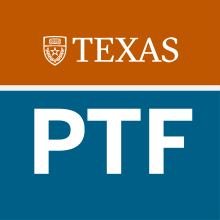Individual Fellow Initiatives

Compassionate Pedagogy and Experiential Learning
The primary goal of this project is to enhance student engagement and participation in the learning environment, especially those who have may have been marginalized by conventional approaches to teaching. This project aims to support, encourage, and train faculty to incorporate compassionate pedagogy (CP) and experiential learning (EL) into their teaching, with the goal of promoting student connection and faculty creativity.

Building a Network of Large-Class Educational Leaders Across Campus
Each year I attend Teaching Discovery Days and Texas Teach-Up and leave motivated to try new teaching practices. The majority of the practices I observe during Texas Teach-Up, hear about at conferences, or read about in the literature need substantial adaptations to work in my large classes. Figuring out how to make new practices work well and remain manageable sometimes seems insurmountable. Discussions with others who teach large courses often provide insights and ideas, but in any given department at UT there may be just one or just a few professors who teach these large class sizes.

Offering Real-World Opportunities for Students Enrolled in Statistics and Data Science Undergraduate Research
The primary goal of this community-based service project is to provide experiential learning opportunities for undergraduates interested in statistics and data sciences while supporting the broader Austin-area community. Coordinating with local organizations, students enrolled in some of our SDS courses are gaining hands-on experience in data analysis while exploring authentic contexts. This innovative and collaborative effort provides a community-based model that allows students and local organizations to co-develop and answer real-world research questions.

Imagery for Critical Thinking: A Pedagogical Approach for Engineering and Science Students
Most science and engineering courses are founded on abstract mathematical and/or analytical theories/concepts. Though the abstract concepts are essential to describe underlying scientific and engineering principles, the teaching pedagogy largely misses out on the utilization of imagery. We expect our students to master the subject we teach, but rarely do we provide them with the necessary tools to synthesize their acquired knowledge. Innovation gets stifled in the maze of abstract theories.

Critical Race Theory in The Steve Hicks School of Social Work
The challenge this project addressed was the enhancement of curriculum at the Steve Hicks School of Social
Work (SHSSW). Social Work is centered in principles from the National Association of Social Workers (NASW)
Code of Ethics which includes a strong and clear commitment to working toward social justice and to dismantle
systemic barriers that keep all people from liberation and wellness. It was hoped that Critical Race theory (CRT)
would enhance our curriculum and provide an additional tool to meet our equity and inclusion mandates to

Making New Scientists: Supporting the Training of Incoming Science Majors
Traditional science degree programs concentrate primarily on content and are not known for preparing their graduates with other skills needed for scientific careers.

Student Success and Well-being
My project is designed to support engineering students primarily in their freshman and sophomore years, when they struggle the most, resulting in high failing rates. Students do not always implement the best study strategies as they transition from high school to college, and do not prioritize their self-care and well-being. College level coursework is significantly more difficult compared to high school level courses and require more critical and abstract thinking.

Diversifying Our Course Materials
(Project completed 2021) In my lectures, I rely on supplementary videos to break up the pace of the lecture and introduce new concepts. However, when I search for videos online, I have trouble finding a diverse representation. As a result, I end up with an oversampling of white male scholars in my course.

Towards an Anti-Racist Climate in Nursing
(Project completed 2021) Systems of oppression gain their power from silence. Faculty in the School of Nursing and across the country are not always comfortable engaging in conversations about race and racism, but these discussions are necessary in order to address the disproportionately poor health outcomes experienced by BIPOC. In response to student and faculty concerns, this project seeks to move our school towards an antiracist climate by targeting multiple layers.

Difficult Dialogues Faculty Learning Community
(Project completed 2021) Since its inception at UT in 2006, the Difficult Dialogues (DD) program has worked with over 40 faculty in 8 colleges or schools to develop Difficult Dialogue signature courses, i.e., introductory UGS courses that promote respectful and productive dialogue about difficult and controversial social issues, including race and ethnicity, gender and sexuality, religion, human rights, immigration, evolution, climate change and sustainability, and illness and mortality.

Global Learning Experiences
Cross-cultural connections can deepen student engagement in the world around them and encourage their creativity about the course material. Such connections can happen in a UT classroom if the student body is particularly diverse, or if students participate in study abroad programs. Global connections are also being created through the Global Classrooms Initiative that connect UT students with students at universities from other countries through classroom activities, conversations and projects intentionally designed to encourage collaboration.

